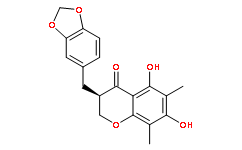Thereby reducing the intracellular drug accumulation, increasing the likelihood of decreased cytotoxic and thus unsuccessful treatment. Currently, 48 distinct ABC transporters have been identified in the human genome, and these can further divided into seven subfamilies based on sequence similarities. Among these transporters, the ABCB1 transporter is the most important mediator of MDR, and is responsible for chemotherapeutic drug resistance to a variety of drug, including vinca alkaloids, anthracyclines, epipodophyllotoxins and taxanes. The overexpression of ABCB1 occurs in 40– 50% of cancer patients, and is associated with a poor clinical outcome. Based on these findings, a number of studies have attempted to selectively inhibit ABCB1 activity as a strategy to reverse MDR in cancer chemotherapy. Indeed, in the past 30 years, significant efforts have been made to design and test specific ABCB1 inhibitors and this has resulted in the development of three generations of ABCB1 inhibitors. CX-4945 However, currently, none of the compounds in the three generations have been approved for clinical use. The first-generation ABCB1 inhibitors, including verapamil, quinine, and cyclosporin A lacked selectivity and produced undesirable adverse effects at plasma concentrations necessary to inhibit ABCB1. The second-generation ABCB1 inhibitors, such as valspodar/PSC-833 and biricodar/VX-710, had improved tolerability compared to the first-generation compounds. However, they produced unpredictable interactions with other transport proteins and inhibited CYP3A4, one of the major chemotherapeutic drug metabolizing enzymes, thereby reducing the the clearance and metabolism of chemotherapeutic drugs. The third-generation inhibitors were more selective for the ABCB1 transporters in ongoing clinical trials. Nonetheless, some of these compounds produced significant adverse effects and had an unfavorable pharmacokinetic profile, including poor solubility as well as reducing the clearance of clinically used anticancer drugs. Recent results from our laboratory and others indicate that several tyrosine kinase inhibitors, including imatinib, nilotinib, lapatinib, and erlotinib, can reverse MDR to antineoplastic drugs mediated by ABCtransporters. However, the reversal potential of these TKIs have not been determined in clinical trials. Consequently, it is necessary to develop more efficacious, non-toxic and less expensive compounds to reverse MDR in cancer cells. In the course of our search for compounds that reverse MDR, we found that vardenafil and tadalafil, two phosphodiesterase PF-04217903 type-5 inhibitors clinically used in the treatment of male erectile dysfunction, significantly reversed ABCB1-mediated MDR. In the present study, we conducted experiments to ascertain the reversal mechanism of vardenafil and tadalafil in ABCB1 overexpressing cancer cells. In addition, we also examined their effect on other major ABC drug transporters such as MRP1 and BCRP. One of the major mechanisms responsible to MDR in cancer cells is the overexpression of the ABCB1 transporter. However, currently, none of the ABCB1 inhibitors or modulators have been approved for clinical oncological practice. The present study demonstrates for the first time that vardenifil, a PDE-5 inhibitor used in the treatment of male erectile dysfunction, reverses ABCB1-mediated MDR in a  concentration-dependent manner.
concentration-dependent manner.